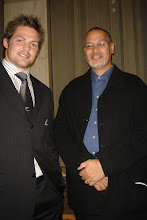Women were often considered the guardians of Family and Community morality and thus had thrust upon them the duties of ensuring behaviour of everyone matched community expectations.
 An area of constant concern to many was the abuse of alcohol. It had been a problem since the earliest of the whaling days in Kororareka which many Missionaries and other visitors had commented upon, often disapprovingly. A Temperance Society had even been established in the Bay of Islands in the 1830’s and local Maori attempted to ban the trade in alcohol because of its effects.
An area of constant concern to many was the abuse of alcohol. It had been a problem since the earliest of the whaling days in Kororareka which many Missionaries and other visitors had commented upon, often disapprovingly. A Temperance Society had even been established in the Bay of Islands in the 1830’s and local Maori attempted to ban the trade in alcohol because of its effects.With the development of a frontier society in the bush and later on the goldfields consumption of alcohol increased markedly. With few women to temper its effects in these areas, male bonding activities centred on imbibing large quantities of alcohol. This has been described as “Mateship” by Jock Phillips or a “Crew Culture” by Belich. Both emphasise the social gaps that this culture filled for men who lacked female companionship.
As New Zealand began to urbanise and the sex ratio evened out (meaning more marriages) the abuse of alcohol was transported into the towns and cities.
Urbanisation also saw the ever expanding middle classes. This class was one in which women were often educated to a higher level than average, leaving them well read and articulate, able to hold not only polite conversation but also a spirited argument if necessary. Another aspect lay in their relative freedom, provided by husbands or fathers who could afford to employ servants. These women could therefore spend time at morning or afternoon teas or luncheons discussing matter of the day.
Increasingly in the 1880’s these discussions turned to social issues. It was the middle class which led the campaign in the “Sin of Cheapness” and as the Depression worsened and abused and abandoned women/families increased they began to agitate against alcohol.
When several petitions to parliament proposing temperance were thrown out they began to realise that change could only come through the ballot. Mary Leavitts visit in 1885 sparked the creation of the Womens Christian Temperance Union (WCTU) and the arrival of Kate Sheppard upon the political stage. With the help of several notable Male politicians (Hall Stout etc) and an increasing well organised campaign (Sheppard organised Franchise committees and edited “the Prohibitionist”) several more petitions were delivered to Parliament between 1890 and 1893.
 Particularly effective were the comparisons with “Juveniles Criminals and Lunatics’ while many men including politicians derided such measures because female physical and mental well being would be endangered. Conservatives like Hall favoured the franchise because they believed women would vote conservatively.
Particularly effective were the comparisons with “Juveniles Criminals and Lunatics’ while many men including politicians derided such measures because female physical and mental well being would be endangered. Conservatives like Hall favoured the franchise because they believed women would vote conservatively.The Liberals under Ballance were sympathetic but Seddon was a staunch critic and with the help of several other politicians who were supported by Breweries managed to stifle any law change. In 1893 Seddon allowed it to pass through Parliament expecting the Legislative Council to veto the Bill. Several Liberals in the Upper House unhappy at Seddon’s behaviour voted for the measure and it was passed. New Zealand became the first country to give true Universal Suffrage to all of its citizens over the age of 21.





No comments:
Post a Comment